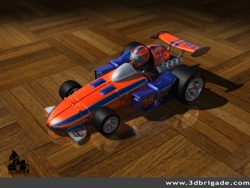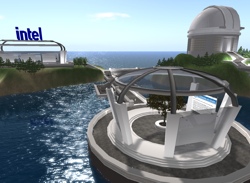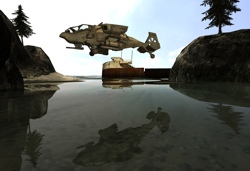
Intel Corporation ha reso noto di aver programmato un investimento pari a circa 12 milioni di dollari in cinque anni per la creazione di un centro di ricerca che opererà nel campo delle tecnologie di grafica avanzata e visual computing.
L'impegno econimico del chip maker ha avuto inizio già da tempo ed una prova dello stesso è rappresentata dall'apertura del centro Intel Visual Computing Institute, avvenuta ieri a presso l'università di Saarbrücken, in Germania.
Il Visual Computing Institute rappresenta la più importante collaborazione di Intel con una istituzione, ed in particolare con una università, sul territorio europeo. Il chip maker ha chiarito che lo studio e lo sviluppo saranno mirati all'analisi e alla evoluzione delle tecnologie grafiche al fine di offrire agli utenti delle soluzioni e dei prodotti (game, modelli 3D, imaging in ambito medicale) sempre più prossimi alla vita reale in termini visivi.

[Immagine ad alta risoluzione]

[Immagine ad alta risoluzione]

[Immagine ad alta risoluzione]

[Immagine ad alta risoluzione]

FELDKIRCHEN, Germany, May 12, 2009 Intel Corporation is investing $12 million to create a new research center that will explore advanced graphics and visual computing technologies. Opening today, the Intel Visual Computing Institute is located at Saarland University in Saarbrücken, Germany. The investment, to be made over 5 years, represents Intel's largest European university collaboration.
Visual computing is the analysis, enhancement and display of visual information to create life-like, real-time experiences and more natural ways for people to interact with computers and other devices. Applications include games, medical imaging and interactive 3-D data models used in areas such as scientific research and financial services. Intel's visual computing vision is to realize computer applications that look real, act real and feel real.
The lab's innovations will help make future entertainment, productivity and the Internet experience more intuitive and immersive. A key mission of the latest member of Intel Labs Europe is to contribute to the company's tera-scale research program, which explores how multiple computing cores will be used to produce higher-performance computing and more life-like graphics.
"Intel has collaborated with the world-class researchers at Saarland University in visual computing for a number of years," said Justin Rattner, Intel senior fellow and chief technology officer. "Given the growing importance of visual computing technology, it made perfect sense to expand our relationship and form this new institute. We are confident that it will become an internationally recognized center and a driver for European leadership in the visual computing field."
The lab will conduct both basic and applied research in realistic, interactive computer graphics and natural user interfaces. By year's end the institute will employ about a dozen researchers from such sources as Intel, Saarland University, Max Planck Institute for Informatics, Max Planck Institute for Software Systems and the German Research Center for Artificial Intelligence.
"The state of Saarland is intensively fostering technology transfer among academic research facilities and the industry," said Peter Müller, Prime Minister State Saarland. "We are very proud of the world-class research conducted at Saarland University, the Max Planck Society research institutes and the German Research Center for Artificial Intelligence. We are equally proud that now we have been able to entice Intel to invest in Saarland. The Intel Visual Computing Institute has the potential to attract even more research in its area of expertise."
One of the new lab's charters is to actively solicit other academic and industry partners to join the research activities over time. The number of research professionals employed is expected to grow by more than five times over the next 5 years and include collaborators from across Europe.
The Intel Visual Computing Institute will deliver more compelling visual computing applications through the development of new software designs and architectures, visual computing algorithms and parallel computing solutions. The institute will establish a feedback loop to Intel's hardware design labs including in Barcelona, Spain and Braunschweig, Germany -- contributing to future visual computing hardware design. Current research contributions are expected to yield new software tools and hardware insights within just a few years.
Intel has a rich history of innovation and creativity in Europe with research and development programs encompassing areas such as chip design, software development, mobile communications and services, atomic-level chip research, development of key Intel products, and research on technologies that could help the aging population to lead healthier, better lives.
Intel's research and development efforts include Intel-owned labs focused on development of Intel products, joint research with European universities, open innovation and collaboration with industry and academia, participation in EU framework programs and cooperative standards development work with industry partners that deliver increased value and productivity to consumers.
Source: Intel Press Release
Links